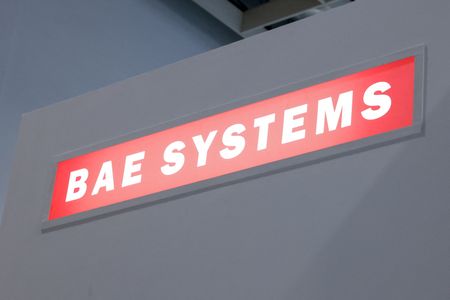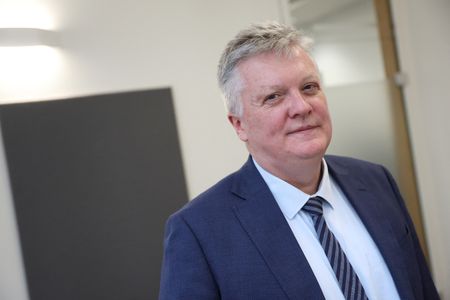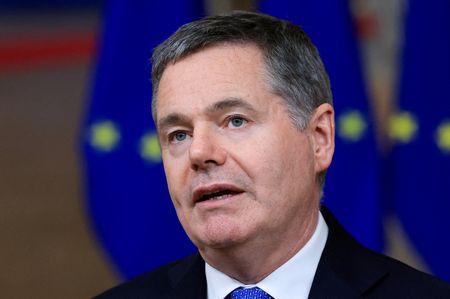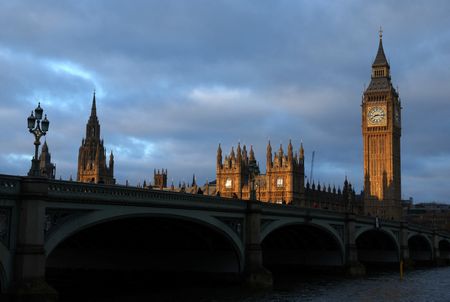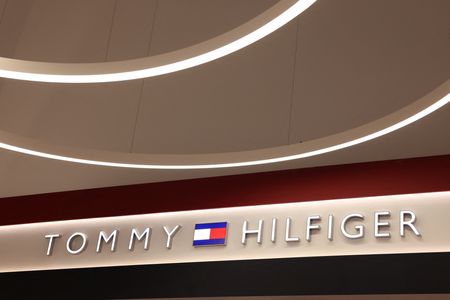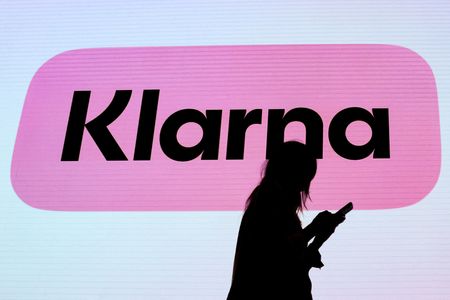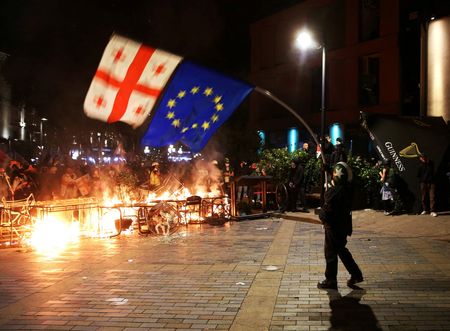By Tim Hepher and Sarah Young
LONDON (Reuters) -Britain’s biggest defence company BAE Systems is teaming up with Boeing and Saab to develop a replacement for the country’s Hawk aircraft, as the UK looks for a new fleet of military training jets.
Confirming a Reuters exclusive from July, BAE said on Tuesday the three companies had signed a letter of intent to collaborate, and would base their design on the T-7, which Boeing and Saab have jointly developed for the U.S. Air Force.
Britain said in June it needed to replace its out-of-production Hawk fleet, part of which is recognisable through its Red Arrows display team, and said then it would welcome interest from UK-based suppliers.
The government is expected to launch a competitive process for a new trainer jet shortly.
“Our new collaboration with Boeing and Saab will enable us to present a compelling offer to the UK Royal Air Force and our global customers,” said BAE Systems’ Air sector managing director Simon Barnes, highlighting that a future product could also appeal to BAE customers like Saudi Arabia and Oman.
Boeing’s CEO of Defense, Space & Security, Steve Parker, had hinted on Sunday that a partnership deal for an international version of its T-7 trainer was imminent.
The three companies’ collaboration includes work on a training system, integration of live and synthetic training capability and associated mission systems, BAE said.
GROWING MARKET
According to U.S.-based consultancy AeroDynamic Advisory, the market for military trainer aircraft is expected to rise to $3.7 billion in 2030 from $2.8 billion, excluding substantial related spending on support, sustainment and training services.
Key suppliers include the T-7, Leonardo’s Aermacchi M-346 and the Korea Aerospace Industries T-50 Golden Eagle.
BAE could face competition from Aeralis, a privately owned early-stage British company which has designed a modular jet trainer, for the Hawk replacement.
Under its plan, BAE said final assembly of the jet would be completed in Britain.
The Hawk trainer was developed by BAE’s corporate predecessor in the early 1970s. The Hawk T2 jets currently flying are set to be retired in the next decade.
(Reporting by Sarah Young and Tim HepherEditing by Mark Potter)

